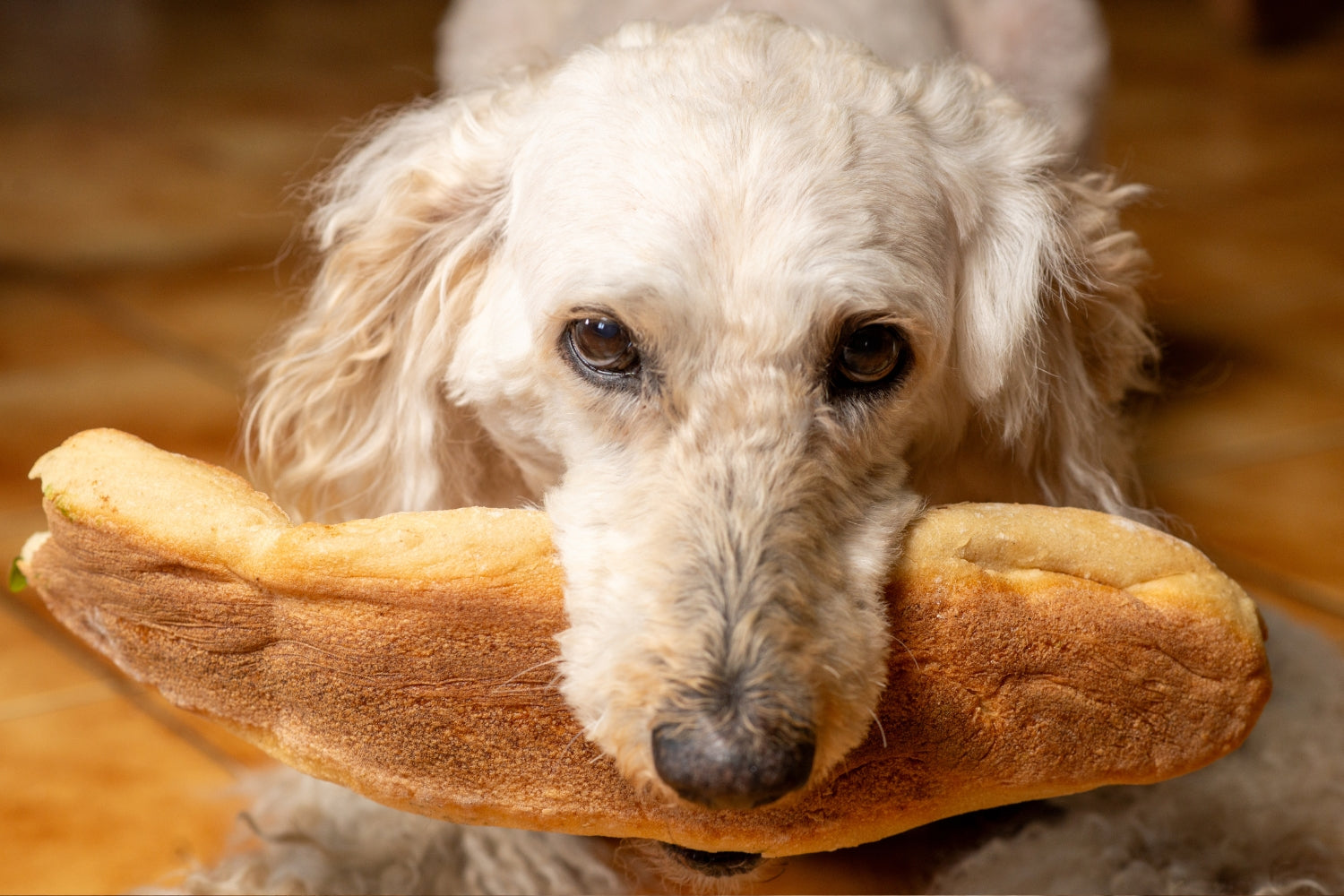Dogs are known for their love of snatching food from their owners' tables. Unlike humans, they do not know what is healthy and what may be harmful to them. Surprisingly, bread is quite a tempting snack for many dogs. Yet, can dogs consume bread without facing any health consequences?
Can Dogs Eat Bread?
The short answer is yes, dogs can eat bread in moderation. Plain, white or whole wheat bread, without any added ingredients like raisins, nuts or seeds, is generally safe for dogs to consume. However, it's essential to remember that bread should only be given as an occasional treat and not as a primary component of their diet.
Potential risk to feeding bread to dogs
While bread itself isn't inherently toxic to dogs, there are some risks and considerations to keep in mind.
Digestive Issues
Bread contains gluten and carbohydrates, which can be difficult for some dogs to digest, leading to gastrointestinal upset such as bloating, gas or diarrhoea. Monitor your dog for any adverse reactions after consuming bread.
Obesity
Bread is calorie-dense and can contribute to weight gain in dogs if fed in large quantities or too frequently. This is especially important for overweight or obese dogs and those prone to weight gain.
Toxic Ingredients
Avoid feeding bread with added ingredients like garlic, onion, raisins or xylitol, as these can be toxic to dogs. Garlic and onions, for example, can cause damage to a dog's red blood cells, leading to anaemia.
Lack of Nutritional Value
Bread lacks significant nutritional value for dogs. While it may offer small amounts of protein and carbohydrates, it's not a balanced diet for your dog. Ensure that bread treats are given occasionally and don't replace essential nutrients from their regular food.
Allergies
Some dogs may have allergies or sensitivities to wheat or gluten. If you notice any signs of an allergic reaction, such as itching, redness or digestive issues, stop feeding bread and consult your vet.
Remember that bread should only complement your dog's regular diet and not replace nutritious meals. When in doubt, consult with your vet for personalised advice.




Leave a comment
This site is protected by hCaptcha and the hCaptcha Privacy Policy and Terms of Service apply.